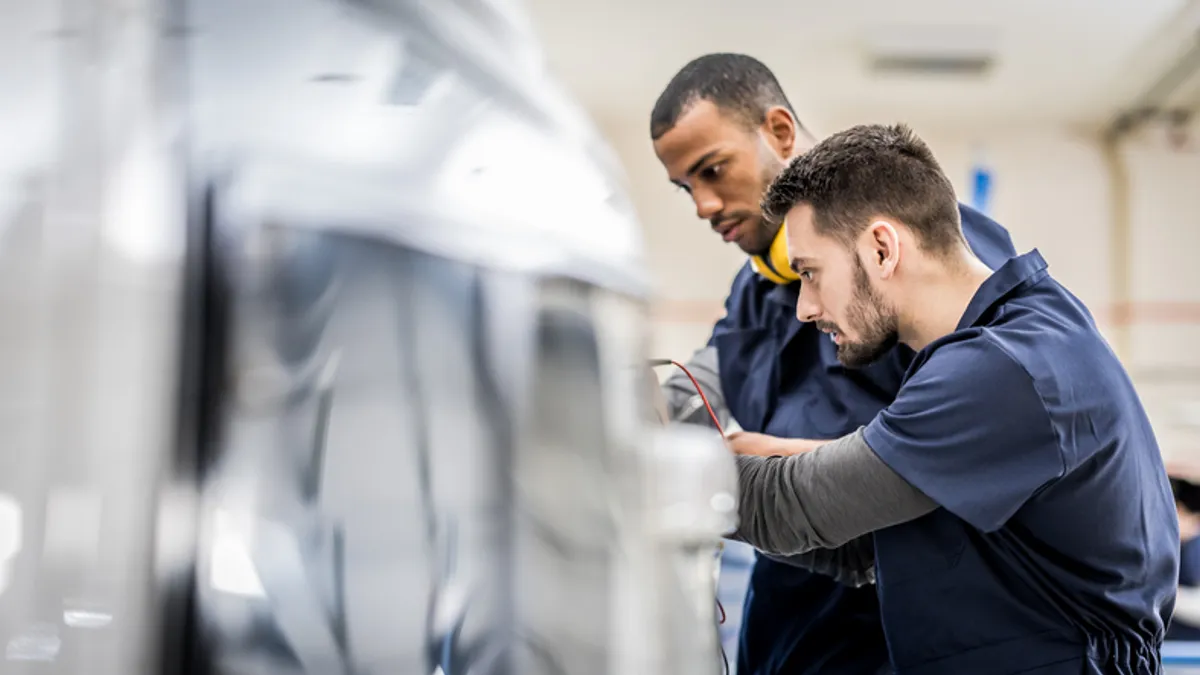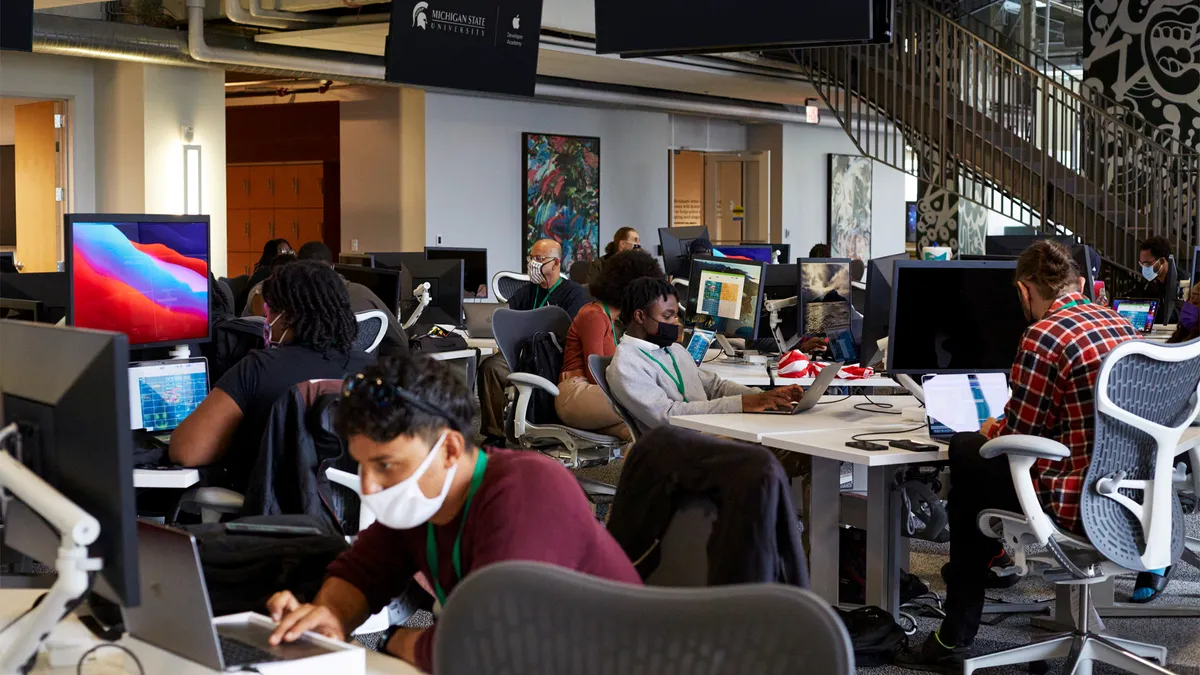Editor's note: This is part two of a two-part series on jobs that don't yet exist. Part one, focused on recruiting, is available here.
What does the future hold for business and employees — and how do we prepare for this bold new world?
Previously, we talked about recruiting for jobs that don’t exist. The next question for recruiters and educators will be how to train for work we can’t even conceive. What skills and competencies will be required, and how do we prepare for them blindly? At LinkedIn Talent Solutions they predict 85% of the jobs of 2030 haven’t been invented yet. What degree will you need for that?
Experts believe that today half the subject knowledge acquired in year one of a four year tech degree is obsolete before graduation day. In 2016, Pew Research Center and Elon’s Imagining the Internet Center asked almost 1,500 technologists, scholars, practitioners, strategic thinkers and education leaders for their thoughts on the future of workplace training. Pew's State of American Jobs report points to lifelong training as well as trait development. In the study, 87% of workers said training and development of new job skills throughout their work life will be essential to keep up with changes in the market.
Traits that can’t (today) be found in automation and AI will likely be highly sought after skill sets. While the tasks may be today unknown, some basics will always be needed, like leadership and creativity. Some emerging skill sets are being identified, however, that may be just as important.
Shifting with the wind
Dr. Linda Sharkey, author of "The Future-Proof Workplace," believes adaptability will be a must for future workers, but we’ll need to change our current learning models to develop it. To do so, classroom learning will give way to experience-focused education that forces people to adapt, solve problems or co-create solutions.
“We have to build on behavioral skills like questioning and listening: teach people how to ask and to have ‘how can we….’ sessions,” she said.
Paul Rigby, chief experience officer at Vitalyst, says that while no one can predict what's coming in the tech space, critical thinking skills (including knowing which questions to ask and how) will be "fundamental to building knowledge."
Digital transformation, according to Rigby, is in reality, human transformation. "Creating a culture where employees embrace all aspects of digital change must begin with people," he said. "It’s by understanding why, how and when to best support employees that companies can experience transformative growth."
Learning to learn
Another key element will be the ability to learn. We may consider learning as inherent; we learn consciously and unconsciously all the time. But proactive learning will be critical to the future workforce.
"Organizations need to move beyond traditional teaching and tech support to building self-help skills so that employees are able to solve problems on their own," Rigby said. He believes the problem with traditional training and tech support focuses on solving the problem, rather than building the skill for the employee to solve it on their own — a skill they can use in the future.
Encouraging and providing access to knowledge will create the lifelong learners the jobs of the future will require.
“Teaching lifelong skills and providing employees resources to develop those skills at their own pace — rather than through one-time training sessions — invokes behavioral changes that encourage employees to actually want to learn,” Rigby said.
Bouncing back as a skill set
Chris Calitz, director of the Center for Workplace Health Research and Evaluation at the American Heart Association, identifies another critical workforce trait: resiliency. The AHA’s "Resilience in the Workplace" report says that two out of three employees report work as a significant source of stress. And workers under duress will have difficulty adapting.
“Clearly, the ideal situation is where both workplaces and workforces are adaptable, which give individuals and companies the ability to quickly adapt to changes such as economic downturns and the impact of technology on jobs,” Calitz said. Employees will need to respond positively to change and stress and business will need to help them do so with support and resources.
Rigby agrees resiliency and resources are required: “Enhancing employees’ resiliency and curiosity begins with enabling employees to solve problems on their own.”
Language fluency
Workers will need to be fluent in the language of business — which overwhelmingly will be code. The more comfortable we are with tech, the less it intimidates. The more user-friendly tech becomes, the more we work with it. In many cases, toddlers can access tech before they’ve learned to read.
That fluency in the use of tech, rather than the fear of it, should serve employers well. In the same way Latin used to be taught to understand the roots of the English language, computer fluency will be needed to understand the roots of all we do.
Perhaps the most important training for jobs that don’t exist will be the curiosity to try.
“Curiosity is also a human dimension that can be learned by teaching people how to co-create solutions," Sharkey said. "Again, the key here is leverage the human connection, facilitating the dialogue and reflections — not leading the learning in a classroom formant."
Technology will not create the jobs of the future — humans will. And as humans create the tech of the future, they’ll create the training to bring workers up to speed.





















